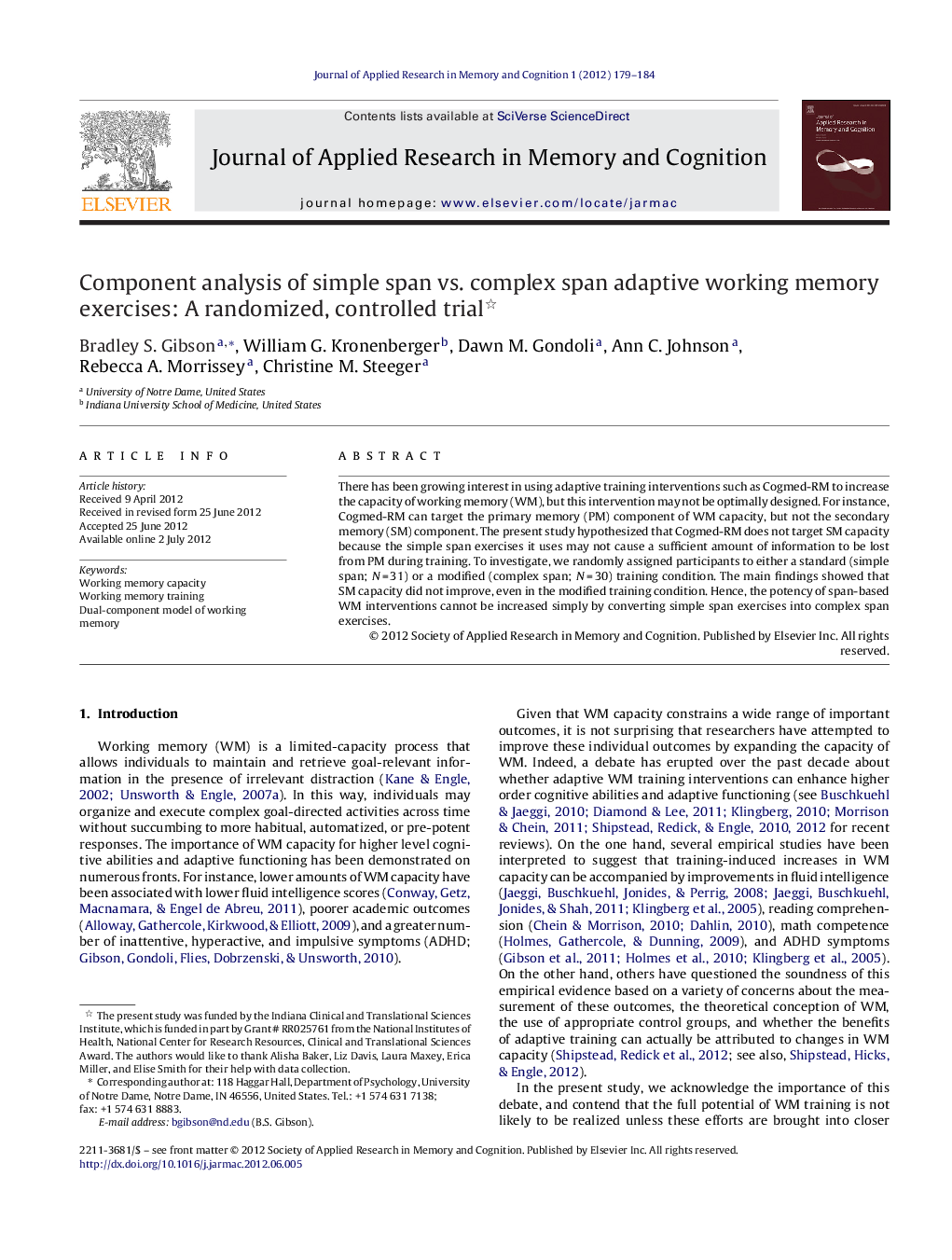| Article ID | Journal | Published Year | Pages | File Type |
|---|---|---|---|---|
| 881689 | Journal of Applied Research in Memory and Cognition | 2012 | 6 Pages |
There has been growing interest in using adaptive training interventions such as Cogmed-RM to increase the capacity of working memory (WM), but this intervention may not be optimally designed. For instance, Cogmed-RM can target the primary memory (PM) component of WM capacity, but not the secondary memory (SM) component. The present study hypothesized that Cogmed-RM does not target SM capacity because the simple span exercises it uses may not cause a sufficient amount of information to be lost from PM during training. To investigate, we randomly assigned participants to either a standard (simple span; N = 31) or a modified (complex span; N = 30) training condition. The main findings showed that SM capacity did not improve, even in the modified training condition. Hence, the potency of span-based WM interventions cannot be increased simply by converting simple span exercises into complex span exercises.
► Cogmed-RM targets primary memory (PM) but not secondary memory (SM). ► The most potent interventions should target both PM and SM. ► Including complex span exercises is not sufficient to target SM in adolescents. ► Future modifications should focus on increasing span length during training. ► The promise of WM training awaits the development of more potent interventions.
